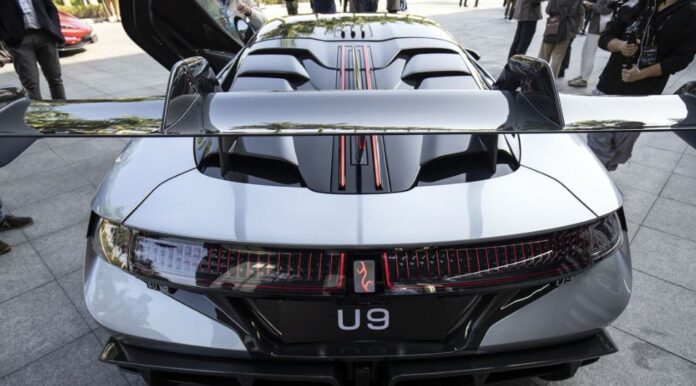The European Union has approved tariffs on electric vehicles (EVs) imported from China, in a move aimed at countering what it sees as Beijing’s unfair subsidies to its auto industry. On Friday, EU member states narrowly voted to impose levies on battery-powered cars from Chinese manufacturers, despite opposition from key players like Germany. The decision, seen as a show of strength by European Commission President Ursula von der Leyen, is intended to protect the European EV market but does not address China’s growing influence in hybrid vehicles and battery production.
Following the vote, the European Commission is continuing discussions with China in an effort to find an alternative solution to the tariffs. However, the bloc appears set to impose additional duties of up to 35% on Chinese EV imports, targeting companies like BYD and SAIC. These tariffs are expected to limit the ability of Chinese automakers to undercut European brands such as Volkswagen and Renault, while potentially encouraging Chinese firms to build manufacturing plants within Europe.
Challenges Beyond EV Tariffs
Despite the new tariffs, China’s influence in Europe’s auto market is far from over. Hybrid vehicles, which combine gasoline engines with electric batteries, are not affected by the levies. Chinese automakers are already ramping up sales of hybrids, capitalizing on their vast domestic production capabilities. These models have surged in popularity, outselling fully electric cars, making this a critical area where Chinese companies hold an advantage.
A major factor behind China’s dominance is its leadership in battery production, which can account for up to 40% of a vehicle’s total value. Companies like BYD control about two-thirds of global battery sales, and thanks to domestic subsidies, Chinese-made batteries can be up to 30% cheaper than their European counterparts, according to S&P Global. Last year, China’s battery exports to the EU soared to $23.4 billion, a tenfold increase from five years ago, raising concerns about Europe’s growing reliance on Chinese suppliers.
Europe’s Response to Growing Dependence
In response to the rising Chinese influence, the EU and its member states are pushing initiatives such as the Net-Zero Industry Act and the Batteries Regulation to encourage domestic production of electric vehicles and batteries. However, European companies like Sweden’s Northvolt are facing challenges in scaling up to compete with their Chinese rivals. Meanwhile, Chinese firms, including Contemporary Amperex Technology (CATL), are continuing to receive increased subsidies, strengthening their position in the global market.
As European auto sales face a slowdown, the ability of local manufacturers to compete with Chinese firms remains in doubt. With China expanding its foothold in both hybrid and electric vehicle markets, Europe’s efforts to support homegrown industries may struggle to keep pace.



